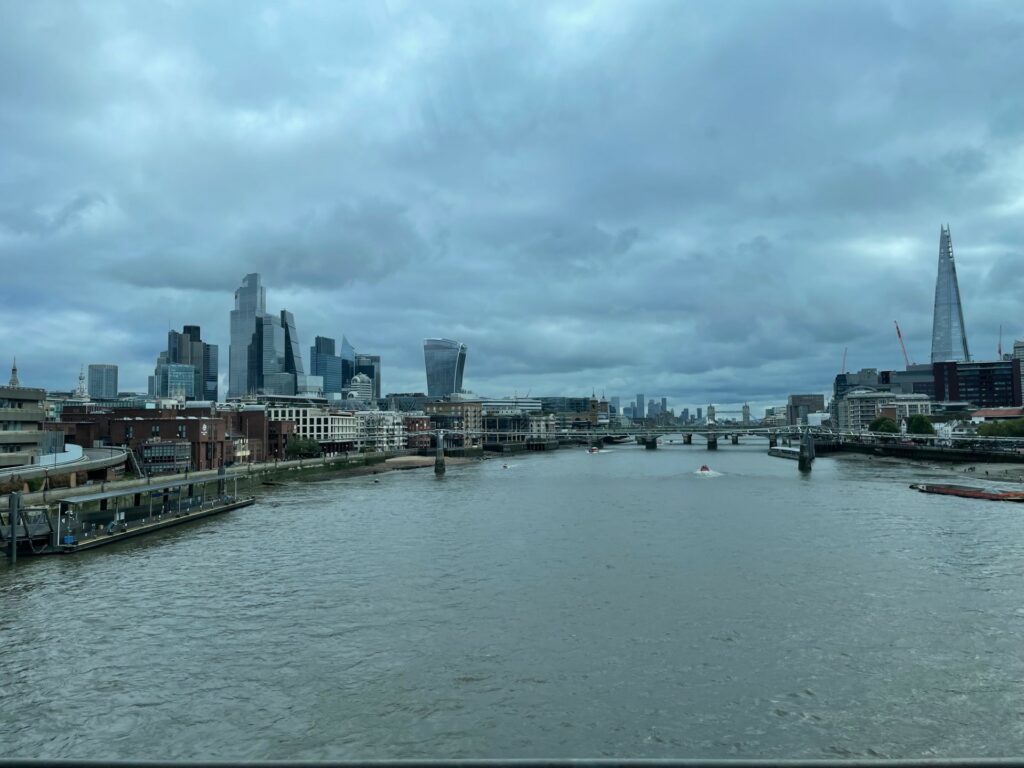I’m sat under a picture in coffee shop in Blackfriars writing this blog for World Mental Health Day. The image is one of a bull with ‘big and strong’ as a strapline. As I reflect on the last 10 months of working in London, especially working across both corporate and public sector environments, I’m struck by the unique mental health challenges that are barely below the surface in every day London working life.
To work in London has become an exciting phase in my (now long) career. It is vibrant and can be energising in a way many places cannot. It is driven and purposeful. I have been a ‘London sceptic’ my whole life but after a year I’m starting to get it.
But from the constant daily grind, long commuting times, to the apparent feelings of disconnection and loneliness experienced by many of the citizens it can have huge downsides. The pace of corporate life in London is relentless. This is not unique to London but it somehow is ‘bigger’. It demands you to be ‘big and strong’. Deadlines are always looming, and the pressure to perform at high levels, with pace setting, can be overwhelming. In the public sector, it remains no less intense—budget constraints, policy shifts, and the demand for efficiency compound the pressure. A report from the Mental Health Foundation found that 74% of UK adults felt overwhelmed or unable to cope at some point over the last year, with workplace stress being a key factor.
This stress manifests in different ways. For me, it has often been a lingering sense of anxiety, a feeling that I’m always on the clock, never quite able to relax or switch off. My career has always been powered by the battery of high functioning anxiety. I’ve been working with a hugely impressive entrepreneur recently who says he works in the same way. It is common across mid-career senior professionals. It can sometimes feel that London is only successfully fuelled by anxiety and coffee. Studies show that stress-related absences in the workplace have steadily increased, with 17.9 million working days lost in the UK in 2019-2020 due to work-related stress, depression, or anxiety (HSE).The trend is not reversing despite awareness and people having more tools and support.
But perhaps even more striking has been the sense of loneliness and disconnection that surrounds the capital. Despite a bustling city filled with millions of people, the isolation of remote or hybrid working has never been more profound. The lack of day-to-day personal interactions, coupled with the transactional nature of many professional relationships, can leave people feeling disconnected from both colleagues and the broader world. Just look to my morning 6.45am commuter train to see the crammed faces lost in phones or looking over tired and despondent. Research shows that loneliness at work is a growing issue, with the Campaign to End Loneliness reporting that 45% of adults in England feel lonely at least some of the time. The Mental Health Foundation highlights that loneliness can increase the risk of depression, anxiety, and even heart disease. Over time, the weight of this disconnection can erode one’s sense of purpose and belonging.
I have written a piece every World Mental Health Day for over a decade with conditions not changing. But World Mental Health Day is a valuable reminder that we need to prioritise our well-being in the midst of these challenges. For me, it has meant making intentional efforts to connect with friends, nurture deeper relationships, cultivate new professional friendships and set boundaries around work. The demands of life in London may not change, but how we respond to them—by prioritizing self-care and community—can make all the difference where we don’t always have to be fuelled by coffee and pressure or indeed be ‘big and strong’.
Stuart Rimmer MBE is a strategy consultant and performance coach

View from Blackfriars on the City of London
